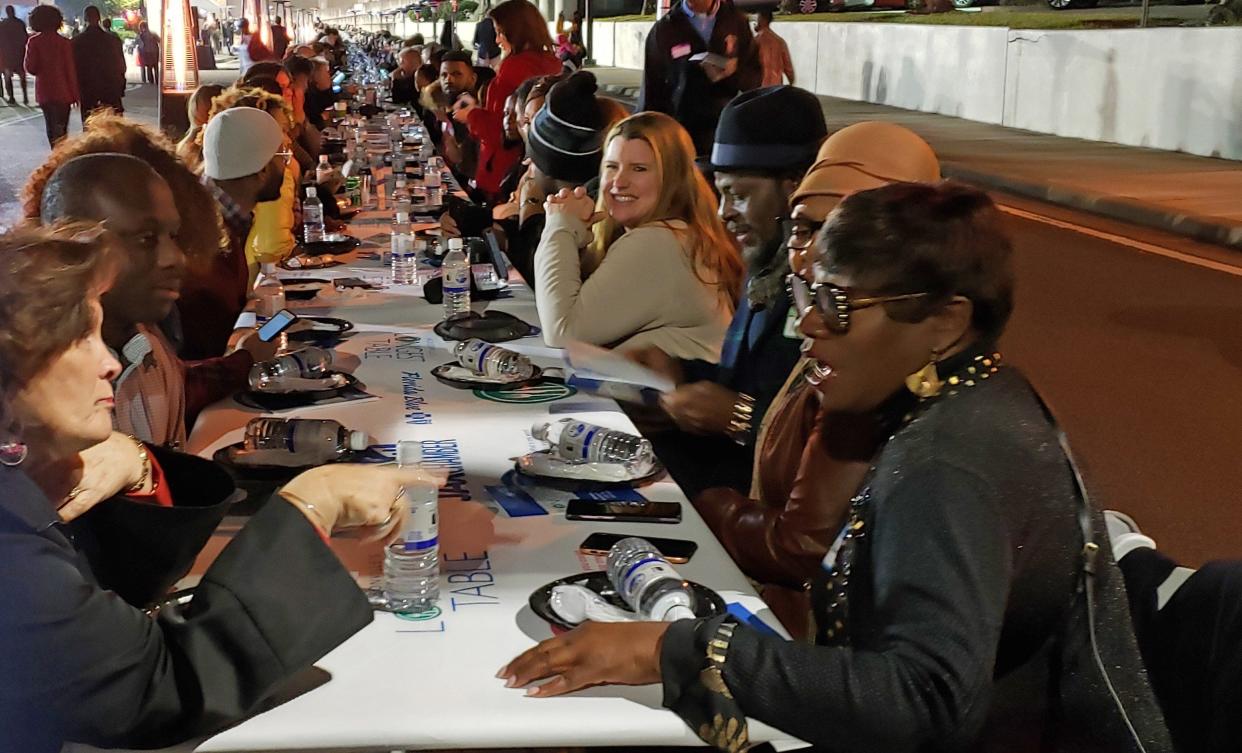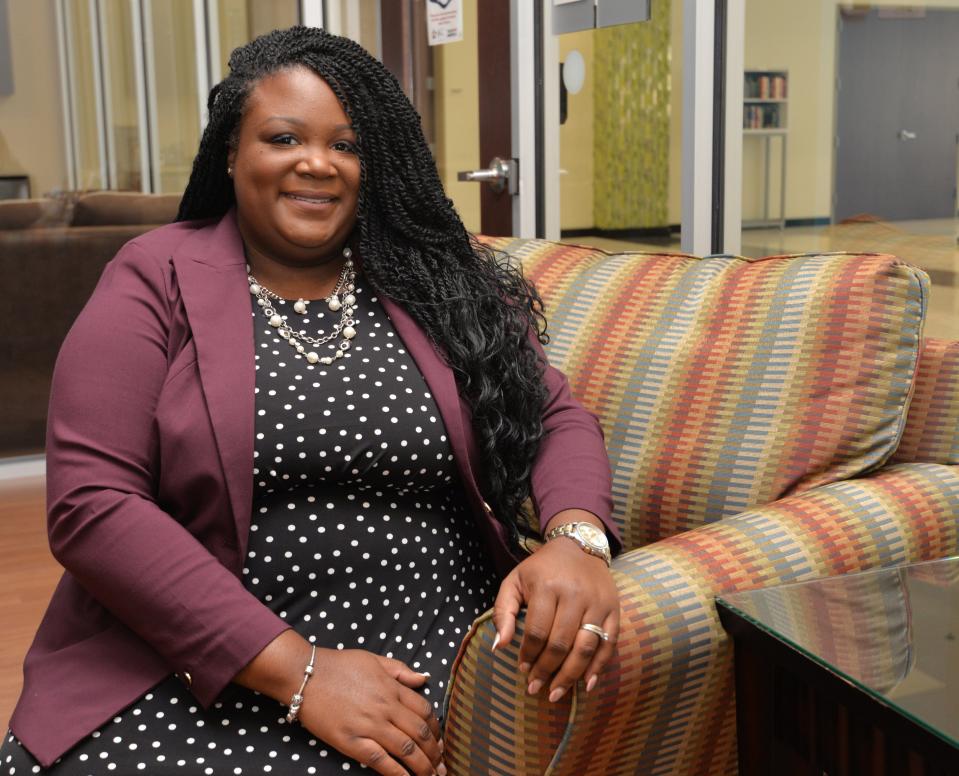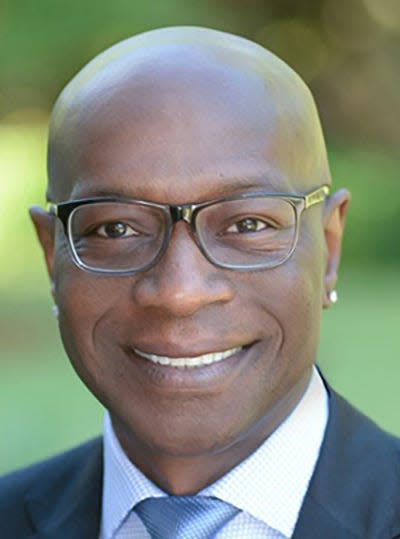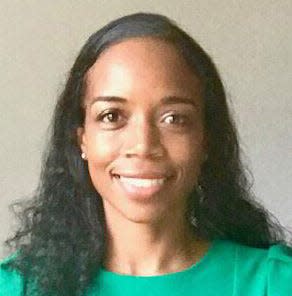Listen, set boundaries and breathe: How to survive disagreements at the holiday dinner table

When Richmond Wynn's University of North Florida counseling students head home for holidays and other visits, they're typically excited at the prospect of sharing their newfound knowledge and expanded world views with family members.
Then at the dinner table they run headlong into that family member who does not agree with their new perspectives.
"They want to tell Nana and Poppy, 'Look at what I've learned,'" Wynn said. "They get really excited and want to share with people they love. It's disappointing … when family members don't share that excitement."
So how do people avoid such predicaments — and the arguments and blow-ups that can result — during family gatherings over the holidays? 904WARD, a Jacksonville nonprofit working to build a more inclusive community, recently called on Wynn and two other professionals for tips on navigating those emotional minefields.
2021 EVE Award winner: 904WARD CEO Kimberly Allen is 'the kind of leader we need right now'
'Ask why': Nonprofit 904WARD charts Jacksonville's past of racial inequity, seeks solutions that stick

CEO Kimberly Allen led a virtual panel discussion on the topic with Wynn, director of the UNF Counseling Center and an associate professor and licensed mental health counselor; marriage and family therapist Jamila Holcomb of Tallahassee, who is also part of the Florida State University faculty; and Jacksonville speaker and personal coach Denise Dean, founder of The Bliss Builder.
The panel discussion was followed by breakout sessions using the nonprofit's signature Race Cards that are designed to prompt conversations about race by asking participants questions about their personal experiences, the current state of race relations and their understanding of privilege and equity, among other things. The deck of cards is designed for use by any small group, including family, co-workers, friends, neighbors, faith groups or community members who have never met.
Leaders of the breakout sessions were encouraged to use Race Card questions about "topics that may surface at the dinner table," Allen said.
If families engage in discussions about "controversial, hot topics, hot-button issues," she said, "we want to make sure folks are having productive conversations, that they are ready to have the conversations, to do the work."

Self-control is critical: know your triggers
The work, the panelists said, includes self-awareness of particular issues that trigger emotional or aggressive responses and self-control when someone sets you off. Holiday gatherings can be difficult in normal circumstances, but the current political and racial landscape boosts the chance of eruptions, they said.
"There is so much going on right now, especially with folks who watch a lot of news and social media. We're being bombarded," Dean said.
904Ward: Jacksonville group unveiling marker at 1919 lynching site; more markers planned elsewhere
More: Philanthropists donate $1 million to civic group working to end racism in Jacksonville
Also, people's desire to avoid conflict can backfire.
"Usually that's people's goal," Holcomb said. Young people ask "how can I talk to my parents without having a big blowup?" she said.
The key is to be willing to be uncomfortable, be quiet and listen to the other person and actually hear them, she said. Listening means hearing, not just waiting for the next chance to state your opinion, Holcomb said.

Only both sides listening and understanding each other leads "to the next level of engagement. That's where the growth and healing happen," she said. "You have to be brave and authentic to push your family and friends forward."
But it's OK to change topics or halt the proceedings if they do not feel safe or constructive, Wynn said.
He recalled being invited to a neighbor's home where another visitor was ranting about certain politicians, "name calling … really being degrading," he said. Wynn listened for a short time, offended, then said, "I am not having this conversation with you."
He made a choice not to engage in that conversation but told the visitor he would be happy to talk about other things.
Withdrawing from hurtful discussions is OK
"I decided that was not a way I wanted to spend my time," Wynn said. "I felt great."
Even with relatives, he said, "you have to be willing to share your truth" but in a respectful way.
"With my parents, I have been able to have difficult conversations, disagreeing throughout," he said. "I loved them anyway and they loved me anyway."
Dean called that respectful give-and-take "setting boundaries."
Ten years on, she still clearly recalls an uncomfortable phone conversation with her grandmother. They had a difference of opinion and neither was giving an inch.
"What can I say to protect myself … and her," she said, "and not come across as disrespectful? She wasn't going to change her mind. I wasn't going to change my mind. I … gave her a warning that I was not going to continue if it was going to go this way."

Making that statement, she said, was painful but necessary.
"That was my granny, you know?" she said.
After several more polite but firm warnings to her grandmother, "I wound up hanging up the phone. Whether it's about race or anything else, feel your own power that you are going to engage or you're not going to engage."
Regardless of the generations involved, everyone just wants to be heard, Dean said.
Listening — and hearing — is key
"Say, 'I hear you.' Listen with your eyes and ears and your whole body," she said. "Let them know you're not just coming in with your thoughts but that you're attempting to listen … to understand."
When emotions get high, shift gears. Talk about shared memories, family stories, something that will bring "warmth and love" to both sides of the conversation, Wynn said. That connection shows that "what I want to be lasting is … our relationship," rather than the disagreement, he said.
Differences of opinion should not be taken personally, Holcomb said, because they stem from each person's experiences.
"It's about their life story. It's not about me," she said.
bcravey@jacksonville.com, (904) 359-4109
904WARD
To donate, volunteer or get more information, go to 904ward.org. To purchase Race Cards for $14.99, go to amazon.com/dp/B08KYK6DPN?ref=myi_title_dp or download a digital version at 904ward.org/digital-deck.
This article originally appeared on Florida Times-Union: Jacksonville nonprofit: How to survive disagreements at holiday dinners

